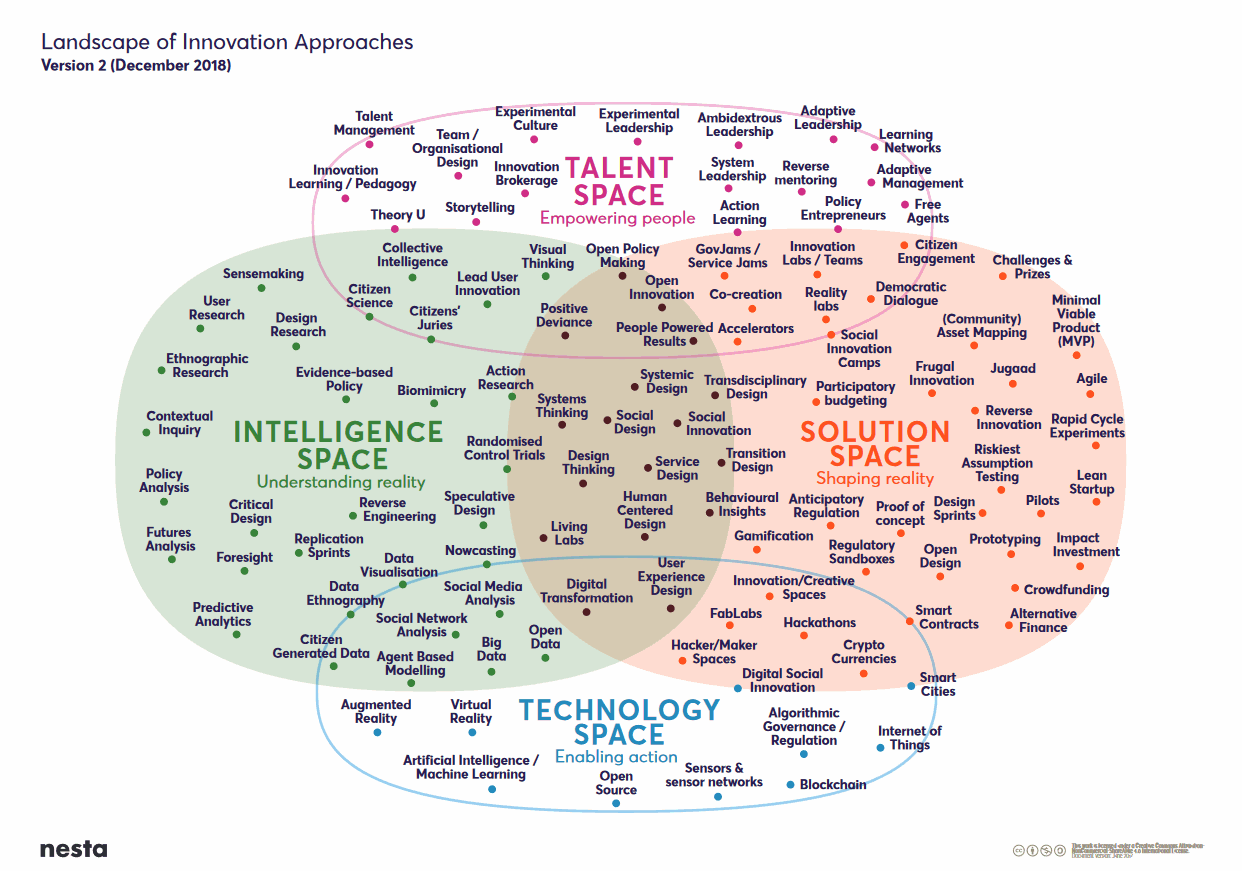 You sometimes need to kick yourself. Well in my case that seems to be increasing by the day. I have to confess I have drifted in and out of checking on Nesta, based in the UK. Different reasons, different focus areas partly although innovation keeps us together, well me checking in on them, I’m not so sure it is the same their end.
You sometimes need to kick yourself. Well in my case that seems to be increasing by the day. I have to confess I have drifted in and out of checking on Nesta, based in the UK. Different reasons, different focus areas partly although innovation keeps us together, well me checking in on them, I’m not so sure it is the same their end.
Nesta is an innovation foundation. They state: “For us, innovation means turning bold ideas into reality. It also means changing lives for the better. This is what keeps us awake at night and gets us out of bed in the morning” They work in areas where there are big challenges facing society, from the frontiers of personalized healthcare to stretched public services and a fast-changing jobs market. They cover a lot of ground and provide some very sound advice along the way.
One of their team, Bas Leurs, who is their head of learning experience design, has been working on “A Landscape of Innovation Approaches“. I read version one in February 2018 and did not pick up on version 2, published as a blog in December 2018. Hence, why I kicked myself.
Although this was built with government and civil servants in mind asking which tools and techniques they should use, this growing list of approaches to innovation is getting highly impressive and a terrific stimulus to any one of us working across innovation, to explore it and then see how and what might also be added, hence why I thought this needed sharing.
In the version 2 blog
They climb into the tools and offer some great guidance and clarity to the links they have found, as their reference and introductory information. Just go and explore these, they are such a storehouse of innovation approaches. It clearly has that bias to government and the UK civil service but all innovators, irrespective, in the private or public sectors will extract good value out of this, I know.
Here is the landscape map again (as shown above)
Just stop and think of this, please
They have broken the tools and techniques in a really thoughtful way. It is how we should be thinking about undertaking innovation. Forget the advice offered in the past, based on the more traditional ways of establishing an innovation process, or much of the sage advice and reflect on this structure. It is a powerful way to construct your innovation toolbox.
This becomes the enabler space for innovation for thinking innovation in that wider context. This approach brings innovation far more up to date in how we should group it and build it for delivering the real understanding of innovation and what actually does make innovation up.
The four spaces are intelligence, solution, technology, and talent. Let me quote their brief descriptors of these and the one additional one of Intelligence- Solution crossover space.
Intelligence Space- understanding reality
These approaches help you make sense of reality, understand the causes and effects of issues, and identify opportunities. Activities are driven by an inquisitive and analytical mindset.
Solutions Space- shaping reality
These approaches help you test and develop solutions. Activities are driven by a generative and entrepreneurial mindset, aiming to shape reality.
Technology space- enabling action
Approaches and technology that enable action and change, such as digital tools and data-related methods (at the intersection with the intelligence space).
Talent Space- empowering people
Approaches focused on mobilizing talent, developing technical and leadership skills and increasing organizational readiness to make change happen
The Intelligence- Solutions Crossover space- using both mindsets
The crossover between the intelligence and solution space includes methods built on both mindsets. They aim to understand, as well as shape reality.
In summary, this map is still a work-in-progress as it gets others feeding in their ideas and giving feedback. I really think this “Landscape of Innovation Approaches” is a terrific source of reference for practitioners as well as theorists to work through.
I do recommend you take a look. Link here again and I certainly want to thank Nesta and especially Bas Leurs for the work that has gone into this and being shared with a wider audience.
*** Download this diagram as a PDF.